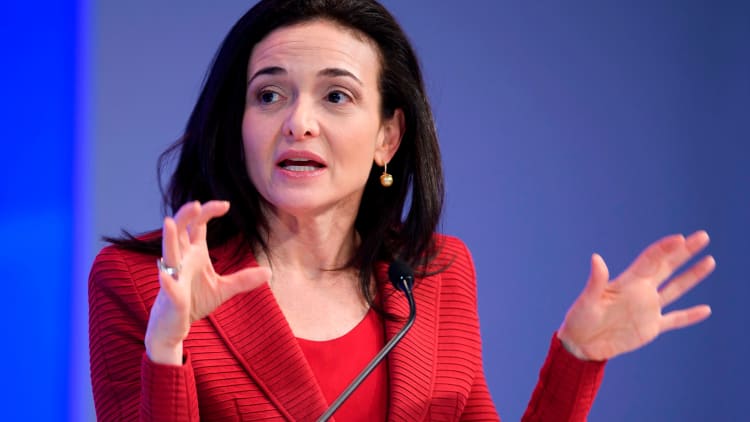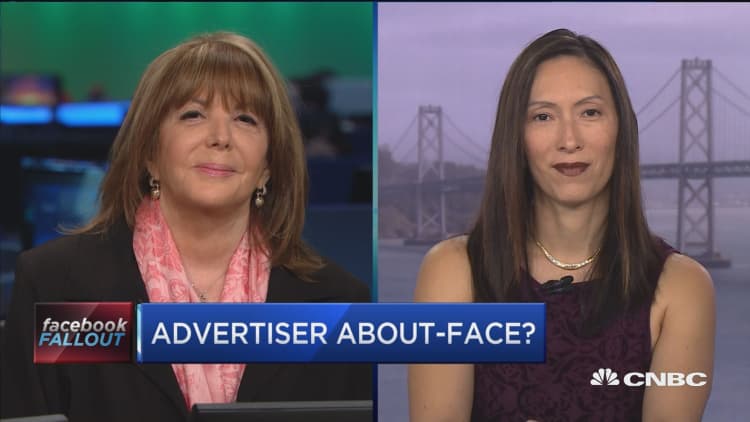
Facebook is being rocked by a data leak scandal, but most advertisers are not planning to reduce their spend, according to conversations with seven people involved in the advertising and media industry who work with Facebook. Some of these people requested anonymity because they were not authorized to speak about their relationship with the company.
Advertising agencies and companies are keeping a close eye and growing cautiously wary of the social network, which has been mired in controversy over the past 12 months, from misreporting key advertising metrics to serving as an avenue for Russian nationals to influence the 2016 presidential election.
One source said the Cambridge Analytica issue was just another major situation on a list of problems Facebook is dealing with. While alone it was not concerning, everything combined is making Facebook more vulnerable to digital advertising competitors.
In particular, companies are monitoring for two possible moves tied to the Cambridge Analytica story:
* Whether privacy concerns will spark a mass exodus of users.
* Whether the stricter data safeguards Facebook is planning will limit advertisers' ability to target users effectively.
"If the changes that Facebook does make impact for the legitimate apps from brands consuming their platform and using it ethically, that's when you're going to see people start to pull ads," said Parker Ray, chief digital strategist at agency MWWPR. "At the end of the day, it's another marketing platform."
'It was only a matter of time before that data was misused'
On Saturday, The Guardian and The New York Times reported data analytics firm Cambridge Analytica, which was hired by President Donald Trump's campaign, used improperly obtained personal information on 50 million Facebook users to target potential voters during the 2016 U.S. election. The data came from a psychology quiz app created by academic Aleksandr Kogan, who allegedly told Facebook he was using the information for research purposes but sold it to third parties.
Facebook said it became aware of the data leak in 2015 and asked Cambridge Analytica to delete the information. Cambridge Analytica said it deleted the information, and did not use it during the election. Kogan said he made Facebook aware the information could be used for other purposes, including licensing and selling the data.
Two companies, Commerzbank and Mozilla, have said they will suspend advertising on Facebook due to the data leaks.
But some advertising sources were not surprised.
"Facebook has been playing fast and loose with their data ever since they started. ... It was only a matter of time before that data was misused, and I think that advertisers knew that," said Andy Amendola, senior director of connections strategy at agency The Community. "We know there was this line that verges on creepy because we know the consumers' data, but I think that's what makes the advertising work so well."
Facebook CEO Mark Zuckerberg addressed the situation Wednesday, saying the company would take steps to investigate all apps with access to large swaths of user data and suspicious activity, further restrict the information apps had on users, and create a tool to make it easier for users to approve what information is shared about them.
No one is leaving
For the most part, agencies are skeptical many people are going to leave Facebook — or at least enough to make a difference for advertisers. The public's attention span is fleeting, noted one executive, and even massive data breaches that affected Yahoo, which included 3 billion accounts, and Equifax — 147.9 million accounts — haven't turned people off those services.
Another executive noted that if advertisers were going to leave Facebook, it would have happened when it was misreporting metrics or brand safety issues arose.
In addition, the public already held Facebook in low regard leading up to the scandal. According to app analytics firm Sensor Tower, sentiment about the company during the the two weeks leading up to the Cambridge Analytica stories was already 83 percent negative — and people were still on the platform.
"People have used Facebook for eight, 10 years or more," Ray said. "People are going to delete an app they've spent that much time building a presence? I don't think so."
Data from market research company NetBase showed a spike in "delete Facebook" conversations, but the majority of chats were in the New York and Silicon Valley areas. While these areas are large population centers, Ray noted it wasn't a huge topic in conversations across the country.
"This is a story that is geared towards agencies and businesses," Ray said. "It hasn't trickled down to how this is going to impact consumers or how customers would care."
What is concerning advertisers is how Facebook might crack down on the data they can use. Advertising technology companies legally use authorized information from Facebook apps to find the right customers — though it's "shady genius" for Cambridge Analytica to allegedly to use a psychology quiz because it provides deeper insights, noted Jesse Math, PMX Agency group director of paid social and display.
If Facebook restricts legitimate apps from collecting data or limits the amount of useful information they can gather, it could limit its effectiveness for advertising. But it's too early to tell.
Most people say they are a few weeks out before being able to make any solid recommendations or decisions.
"Abandoning Facebook would be a huge revenue and traffic referral stream hit," Math said. "I hope in the future there may be a viable alternative that's better for everyone. But I don't believe that platform even exists today."



